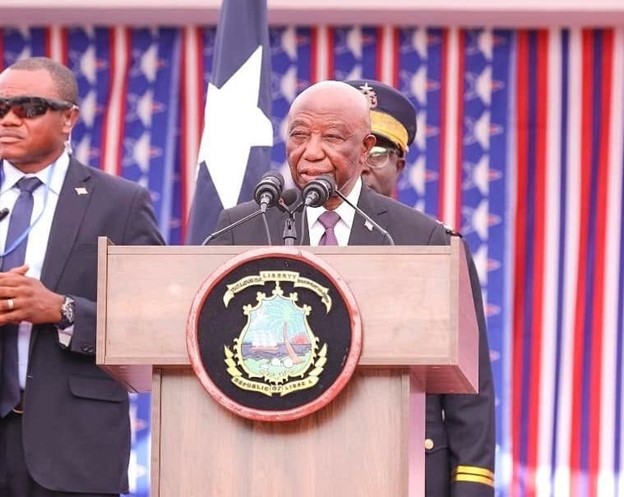President Joseph Boakai’s recent trip to Washington D.C. for the High-Level U.S. African Leaders Summit has sparked a wave of public debate in Liberia, with opinions sharply divided on the visit’s value and potential impact. While some criticize the seemingly superficial nature of the interaction between President Boakai and President Trump, the Liberian government maintains that the summit and related engagements have yielded substantial benefits for the nation, ranging from diplomatic advancements to renewed prospects for development aid.
The summit, which convened five African heads of state, aimed to bolster diplomatic ties, foster shared economic objectives, and enhance security cooperation between the United States and the participating African nations. President Boakai’s primary request during the summit was for the U.S. government to conduct a geological survey to ascertain Liberia’s mineral resources, a plea met with what some perceived as a dismissive response from President Trump, who reportedly focused instead on President Boakai’s English proficiency. This exchange fueled criticism within Liberia, with some characterizing it as a mockery of the nation’s needs, while others viewed it as an opportunity to elevate Liberia’s presence on the global stage.
Amidst the controversy, Liberia’s Information Minister, Jerolinmek Piah, staunchly defended the trip, emphasizing the significance of President Boakai’s inclusion among the select group of African leaders invited to the summit. Minister Piah highlighted several key achievements stemming from the visit, including diplomatic engagements at various levels of the U.S. government and international financial institutions. He stressed the importance of meetings with the U.S. State Department, the International Monetary Fund (IMF), the World Bank, and the Millennium Challenge Corporation (MCC), all crucial for Liberia’s pursuit of development assistance.
A central focus of these discussions was the status of Liberia’s second Millennium Challenge Corporation (MCC) compact, a vital source of development funding. Addressing public concerns about the compact’s potential cancellation, Minister Piah clarified that it was under review, aligning with the President’s international engagement strategy. He assured the public that the outcome of this review and subsequent steps would be communicated transparently upon completion. This clarification aimed to alleviate anxieties and reiterate the government’s commitment to securing vital development funding.
Beyond the MCC compact, Minister Piah underscored the broader diplomatic gains achieved during the visit. He emphasized Liberia’s advocacy for continued U.S. engagement in Africa, particularly in Liberia, highlighting the importance of understanding the structural frameworks that will guide future U.S. involvement. He also noted President Trump’s apparent appreciation of Liberia’s current membership in the United Nations Security Council, which further underscores the potential for deeper collaboration on Liberia’s development priorities.
The Liberian government’s narrative emphasizes the strategic importance of the U.S. visit beyond the optics of the summit itself. Minister Piah’s detailed account of engagements with key U.S. government agencies and international financial institutions suggests a proactive approach to securing development assistance and strengthening diplomatic ties. While public skepticism persists regarding the tangible outcomes of the trip, the government maintains that the visit has laid the groundwork for significant future benefits for Liberia, positioning the nation for increased international support and development opportunities. The true impact of the visit, however, will likely unfold in the coming months as the government follows up on the discussions initiated during the trip and strives to translate diplomatic engagements into concrete development progress.














